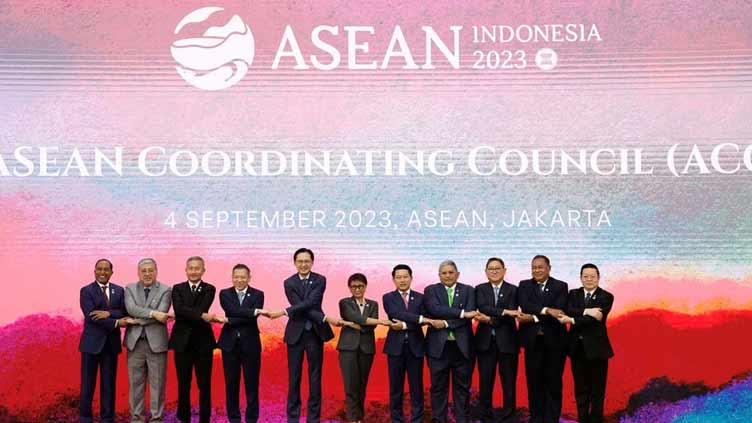Conflict-riven Myanmar cedes upcoming ASEAN chair to Philippines

World
Myanmar was slated to chair the 10-member regional grouping in 2026
JAKARTA (Reuters) - Myanmar has ceded its turn to chair the Southeast Asian regional bloc, an official confirmed on Tuesday, after the group agreed that an existing, but widely-criticised peace plan will continue to guide its response to the bloody conflict there.
The Association of Southeast Asian Nations (ASEAN) has faced criticism for its failure to get Myanmar's ruling military to make progress on a five-point peace consensus agreed shortly after it seized power in a 2021 coup.
Despite scepticism over its effectiveness, ASEAN agreed on Tuesday the peace plan would continue to guide its approach to Myanmar's political crisis, according to an official document seen by Reuters.
The document also showed the bloc "urged the Myanmar Armed Forces in particular and all related parties concerned in Myanmar to de-escalate violence and stop targeted attacks on civilians."
Myanmar, which has been gripped by violence and political and economic chaos since the coup, was slated to chair the 10-member regional grouping in 2026.
But regional leaders agreed the Philippines would assume the role in 2026 instead.
"The Philippines will take over the ASEAN chairmanship for 2026," ASEAN secretary general Kao Kim Hourn told Reuters after the first day of the group's annual summit in Jakarta, adding the switch was first proposed by Myanmar.
Indonesian Foreign Minister Retno Marsudi said leaders had also agreed to an informal "troika" approach to ASEAN's special envoy on Myanmar, which would see the chair supported by the former and future chairs for continuity.
"A troika was formed to ensure the continuity in terms of handling the issue because everyone understands this situation cannot change in one year," Retno told reporters.
While the bloc prioritises unity and non-interference in sovereign affairs, differences have emerged as Indonesia has sought to engage all stakeholders in the conflict while Thailand has tried to re-engage with the ostracised junta leaders.
'NO PROXY'
Opening the summit on Tuesday, Indonesian President Joko Widodo warned against countries in the bloc getting dragged into big-power rivalry.
"ASEAN has agreed to not be a proxy to any powers. Don't turn our ship into an arena for rivalry that is destructive," he said.
The sharpening rivalry between China and the United States loomed over the meeting. Some ASEAN members have focused on developing close diplomatic, business and military ties with Beijing while others are more wary.
The summit comes days after China released a "10-dash line" map, illustrating its claim to an extensive portion of the South China Sea that will likely add urgency to negotiations on a long-delayed code of conduct in the strategic waterway.
ASEAN member states Malaysia, Vietnam and the Philippines, which have overlapping claims in the South China Sea, have rejected China's map.
Later this week, ASEAN leaders will hold an East Asia summit, a wider forum that includes China, India, Japan, Russia and the United States.
Adding to unease about ASEAN's relevance, U.S. President Joe Biden is not attending the talks. Vice President Kamala Harris will attend instead. Chinese Premier Li Qiang will also attend.

